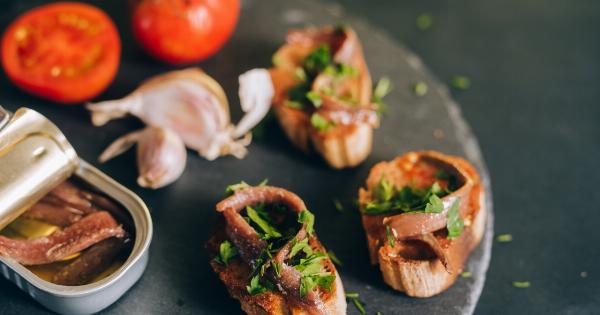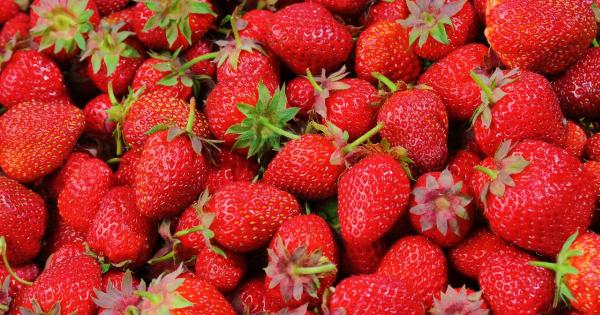During pregnancy, it is crucial to pay extra attention to your diet and make sure you are consuming nutritious foods that support the growth and development of your baby.
While many foods are safe and beneficial during this time, there are certain ingredients and cooking methods that should be avoided due to potential risks they pose to both you and your unborn child. In this article, we will discuss what not to cook during pregnancy and provide you with helpful tips and alternatives to ensure a healthy and enjoyable culinary experience.
1. Raw or Undercooked Meats
Cooking meat thoroughly is essential during pregnancy as it helps eliminate harmful bacteria and parasites that can cause foodborne illnesses.
Raw or undercooked meats, such as sushi, sashimi, rare steaks, and unpasteurized hot dogs or deli meats, can carry bacteria like Salmonella, Listeria, and Toxoplasma, which can lead to severe infections and harm your developing baby. It is advisable to always cook meat until it reaches recommended internal temperatures and avoid consuming raw or undercooked meat products.
2. Raw Seafood
Eating raw seafood, including oysters, clams, mussels, and certain types of fish like sushi-grade tuna, can expose you to harmful viruses, bacteria, and parasites. These pathogens can cause food poisoning and fetal abnormalities.
It is recommended to avoid raw seafood altogether during pregnancy to reduce the risk of infections and ensure the safety of your baby.
3. Raw Eggs and Unpasteurized Dairy
Raw or undercooked eggs, as well as unpasteurized dairy products, should be avoided during pregnancy due to the potential risk of Salmonella contamination.
This bacteria can harm both you and your baby, leading to severe stomach cramps, diarrhea, and fever. It is crucial to ensure that eggs are thoroughly cooked, and dairy products are made from pasteurized milk to minimize the risk of bacterial infections.
4. Certain Seafood High in Mercury
While seafood is an excellent source of essential nutrients like omega-3 fatty acids, some types can contain high levels of mercury, which can be harmful to your baby’s developing nervous system.
Avoid consuming fish such as shark, swordfish, king mackerel, and tilefish, as they commonly have high mercury content. Instead, opt for low-mercury seafood options like salmon, shrimp, catfish, and light canned tuna, and limit your intake to two servings per week.
5. Unwashed Fruits and Vegetables
Fruits and vegetables are essential for a healthy pregnancy diet, but it is crucial to wash them thoroughly before consumption.
Unwashed produce can carry harmful bacteria and parasites present in soil or contaminated water, which may pose a risk to both you and your baby. Washing fruits and vegetables under running water can help remove dirt, bacteria, and any pesticide residues, ensuring their safety for consumption.
6. Excessive Caffeine
While a moderate amount of caffeine is generally considered safe during pregnancy, excessive intake should be avoided. High caffeine consumption has been associated with an increased risk of miscarriage and preterm birth.
It is recommended to limit caffeine intake to no more than 200 milligrams per day, equivalent to one 12-ounce cup of coffee.
7. Alcohol and Unpasteurized Juices
Avoiding alcohol during pregnancy is crucial, as it can cause a range of birth defects and developmental issues. Even moderate consumption of alcohol can have severe consequences for your baby’s health.
Additionally, unpasteurized juices can carry harmful bacteria like E. coli or Salmonella. It is best to opt for pasteurized juices or make your own fresh juices from washed and safe fruits and vegetables.
8. High-Mercury Herbal Teas
Certain herbal teas, like those made from chamomile, comfrey, or pennyroyal, can contain high levels of mercury or other potentially harmful compounds.
These teas should be avoided during pregnancy to prevent any negative effects on your baby’s development. It is essential to opt for pregnancy-safe herbal teas like ginger tea or rooibos tea, which provide numerous health benefits without the associated risks.
9. High-Fat and Fried Foods
Consuming excessive amounts of high-fat and fried foods during pregnancy can lead to weight gain and increase the risk of developing gestational diabetes and other complications.
It is advisable to prioritize healthy fats from sources like avocado, nuts, and olive oil, and opt for cooking methods such as baking, steaming, or grilling, which are less reliant on excessive oil or fat.
10. Foods with Artificial Additives
While it is generally recommended to avoid foods with artificial additives, it becomes even more important during pregnancy.
Certain artificial sweeteners, food colorings, preservatives, and flavor enhancers may not be safe for your baby’s development. It is advisable to opt for whole, unprocessed foods and read food labels carefully to avoid any potentially harmful artificial additives.
During pregnancy, prioritizing a diet rich in nutritious foods while avoiding potentially harmful ingredients and cooking methods is essential for the health and well-being of both you and your baby.
By being mindful of what not to cook and making informed choices, you can ensure a safe and enjoyable culinary experience throughout your pregnancy journey.






















